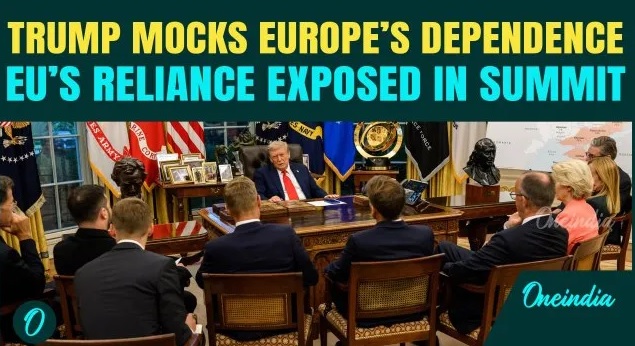
“How committed is NATO to the defence of the Baltic states?” – Gideon Rachman, a ‘Financial Times’ observer, puts a question.
Uncertainty about Washington’s response is the key to Moscow’s probing. The US provides about 40 per cent of NATO’s military assets in Europe and some of its most advanced capabilities. There are also American troops in the Baltic states.
Just beneath the surface, there is real tension between the Trump administration and its Baltic allies. In Washington, I have heard complaints about the “Estonianisation” of European foreign policy — a reference to the fact that Kaja Kallas, the EU’s foreign policy chief, is Estonia’s former prime minister. In parts of the Trump administration, the Balts are regarded as dangerously aggressive in their attitude to Putin. At a recent high-level Pentagon meeting, Baltic officials were accused of being “ideological” in their opposition to Russia.
The suspicion between the Balts and the US is mutual. In the corridors of the Estonian foreign ministry last week — just outside the offices of the most senior officials — I saw a large reproduction of the vote tally from last February’s UN debate on Ukraine, in which the US voted with the Russians. The message seemed clear. Don’t assume that Trump’s America is on our side.
The largest European countries are much more consistent than the Trump administration in their insistence on the need to counter “Russian aggression.” But they are also very nervous about the idea of fighting Russia without the US alongside them — witness the agonising about whether a European “reassurance force” could ever be deployed to Ukraine without an American “backstop” behind it.
But while NATO has to deal with uncertainty, so do the Russians. Trump is so volatile that his reactions in an international crisis cannot be predicted. Many Trump-watchers assumed that he would never authorise US participation in the bombing of Iran. And yet that is precisely what he did, earlier this year.
Even if America stood aside in a crisis in the Baltics, the British, French, Germans and Canadians all have troops deployed there that are pledged to fight. Poland and Finland — both well-armed nations — know that their own security is closely entwined with the fate of Estonia, Latvia and Lithuania. They too would probably defend the Baltic states.
read more in our Telegram-channel https://t.me/The_International_Affairs

 9:35 30.09.2025 •
9:35 30.09.2025 •






















